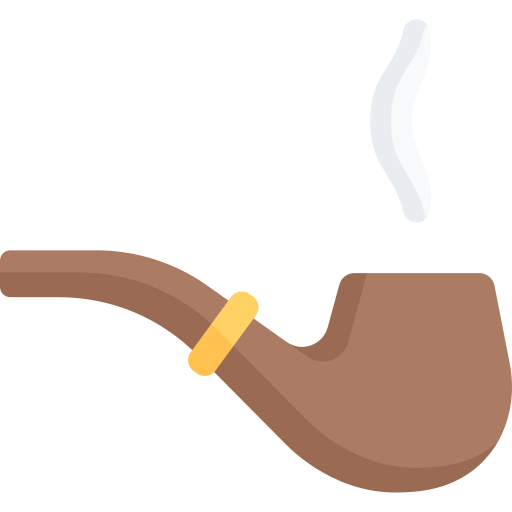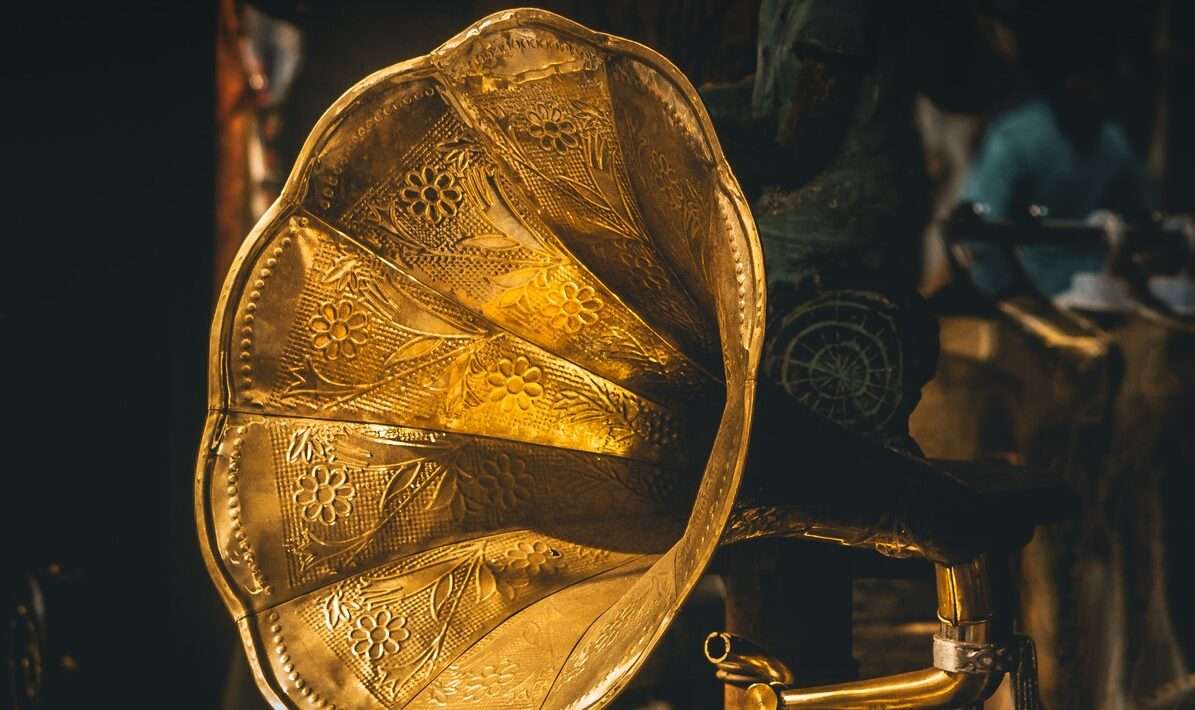(CM76-7: 42 cues). MM39 trumpets silent until V v at the entrance of the newly crowned king who rejects Falstaff. MM8 no woodwind.
| act | scene | line | Click here to find out more about suggested song | |
| Induction | 15-20 | [Rumour is a pipe Blown by surmises, Jealous’s conjectures, And of so easy and so plain a *stop That the blunt monster with uncounted heads, The still-discordant wav’ring multitude Can play upon it.] cf Ham III ii 332-63 | ||
| I | ii | 188-190 | [For my voice, I have lost it with hollowing and singing of *anthems] | |
| 192-3 | [he that will *caper with me for a thousand marks] | |||
| II | i | 91-92 | [the Prince broke thy head for liking his father to a singing-man of Windsor] | |
| iv | 11-12 | [see if thou canst find out Sneak’s noise. Mistress Tearsheet would fain hear some music.] | ||
| 33, 34 | Enter …Falstaff [Lo, here comes Sir John] Sings [probably bellowing] [10]. WHEN ARTHUR FIRST IN COURT see SB64 and 234 cf SS xvii 214-22 and SQ ix 553-5 for various versions | 55 | ||
| a) (LH82) ‘In Pescod time’ voice unacc.; HOLBORNE, cittern HC13; tune SB234 (The ‘In pescod time’ verses are given in DO 218-220; ۞DO ii 31) | ||||
| b) uCM78: 16c ‘Chevy Chase’ [i.e. later name for early ballad tune ‘Flying fame’] SB63 & C198-9/ CW90-2/ G23-4/ CS104/ MK138 for versions of ‘Flying fame’; Melody and words DO435-7; as song with cittern ۞DO i 68; air and bass SB63; setting in major key, tune SB64 | ||||
| c) uC271-2 ‘Sir Launcelot du Lake’ ‘second tune to ‘When Arthur first in court began’ CW92, C272 | ||||
| 194 | [Then DEATH ROCK ME ASLEEP, ABRIDGE MY DOLEFUL DAYS!] | 56 | ||
| a) N108-9; C: allusion to anon lute song ‘O death, rock me asleep…Ring out my doleful knell’ (GB-Lbl Add. MS. 15117 f3v) facsimile BL i 3; MB lxvi 74; words and melody DO281-3; ۞CamS10/ ۞DO ii 45 i/ ۞Lg 10/ ۞Ph32; as a consort song (GB-Lbl Add. ms. 30480-4) MB lxvi App III 1/ M + STTB viols MBxxii 1/ WE iii 1; ۞Ba,S8/ ۞EmH20/ ۞Ge 14/ ۞RoE5; as a lute song ۞ MsE i 18; words and melody DO281-3; ۞DO ii 45 i; words (poem attributed to Anne Boleyn) underlaid to different setting of the melody: CW111-3/ C237-8/ N108-9/ G34/ DO 283; ۞DO ii 45 ii/ ۞MsE i 18; | ||||
| b) MH141-2 dance music with a ‘dying fall’ e.g. a DOWLAND pavan | (31a) | |||
| 226-8 | Enter musicians [The music is come, sir./ Let them play. –Play sirs!]. {Music plays} | 57 | ||
| a) LH84: 1568 *passymeasure galliard for lute (DY 10, p. 84/ FO) lute/k LH84/ cittern (CCp8) LSoc C29; SB421 as ‘Shaking of the sheets’ [1610 COBBOLD from the quodlibet of popular tunes of the time ‘New Fashions’ S+ tr-v A+ a-v T+ t/b-v B+t/ bass viols MB xxii 71, bars 110-136; ۞Tv2 iii; tune CW228-9/ C84-6/ RE 11; DERING Country cries MB xxii 70, bars 92-101; ۞Tv 11] (note that the Playford dance ‘Night piece, or The shaking of the sheets’ has quite a different tune, see 414d) | ||||
| b) (B243) Greensleeves N188 | (245b) | |||
| c) (B243) ‘Come live with me’ | (180a) | |||
| d) ۞BroS9 Staines morris | (276c) | |||
| 277-8 | (interjection) [A merry song!] {The music plays again} | |||
| 376, 381 | [Pay the musicians, sirrah]. {Exeunt musicians} | |||
| 386-7 | [I have known thee these twenty-nine years, come peascod-time] DO218 ‘In Peascod Time’ melody and words (31 verses) | (18) 58 | ||
| III | i | 14 | [lulled with the sound of sweetest melody] | |
| ii | 214-5 | [Our watchword was ‘Hem boys!’ Come, let’s to dinner] | ||
| a) DO192 –3 ‘Hem, boys, hem!’ (There was an old fellow of Waltham Cross… with a Hem, boys, hem…’) catch in HILTON Catch that catch can | 59 | |||
| b) DO193 ‘Hem, boys, hem!’ set to version of ‘Dargason’ with ‘Lilliburlero’ (Sc iv 41/ CwL22/ Eb311/ E216; recordings of Lillibulero are on ۞BroJ5/ ۞Cw24/ ۞CwL22 and ۞EnG 16) | (176c) | |||
| after 309 | [sung those tunes to the overscutched hussies that he heard the *carmen whistle, and | |||
| [in Q only] | sware they were his *fancies or his *good-nights]. Allusion to the ‘Carman’s whistle’ tune SB56/ RE8 iv/ C137-9/ ESI76; à 3 CM412/ | 60 | ||
| MA29/ ۞YM26 pipe and tabor ; tune and words FO90; 1590 BYRD version of Tune C140/ N188, ۞Mh23; bc ۞YF 17 i; tune with various texts DO90-94; ۞DO ii 6; harmonized statement (CW253-4) from Variations kF58/ BY34/ MB xxvii 36/ K57; ۞BaW10/ ۞Cap12/ ۞FA i 6/ ۞Mo i 1/ ۞Py23; (PI f32v-33); viols ۞Ta 12; rAATB Oriel OL107 (with ‘Rowland’); rA + continuo; rSS + k MA13; rSSAT Fq4; John JOHNSON (attrib. possibly to Robert JOHNSON by Cutts and by Jeffery) (PI 82 32v-33r) PIv 3 lk LU26; ۞N9/ ۞OL22; anon. (ed. Dolmetsch Divisions on ‘The Carman’s whistle’ ۞BreG10/ ۞Sa6; r+k UE14024. [Note. This tune has been set to ‘Hey boys, up we go’ BYe6 | ||||
| 315-6 | […The case of a treble hautboy was a mansion for him…] (instrument case) | |||
| IV | i | 50-52 | [Turning…your tongue divine To a loud trumpet and a point of war?] (i.e. short signal) | |
| iii | 133-6 | [Let there be no noise made, my gentle friends; Unless some dull and favourable hand Will whisper music to my weary spirit./ Call for the music in the other room. {Still music within} W10 implied string music | ||
| a) LH87: ‘*still music’ 1599 HOLBORNE ‘Last will and testament’ pavane off stage recorder or viol consort à 5 H53/ H1048; ۞A19/ ۞CamS14/ ۞DoP16/ ۞Pb26/ ۞Lg4; rSSATB Hn ii 1/ Hb iii 1/ DQ4; bqHA ii 53 l; [Jeffery 46] Lute pavane no 7 HB 12; ۞Ma5/ ۞W22 | 61 | |||
| b) MH141-2 to a DOWLAND pavane | (31a) | |||
| 138 | {A noise within} [Less noise, less noise!] | |||
| V | iii | 17-103 | [11-16].The six Shrovetide Wassail fragments. Cf comments in ME153. | 62A=F |
| a) LH89 all snatches sung to tune of ‘Be merry, be merry’ (MB iv 6 vocal duet) | ||||
| b) setting based on stage tradition FV27: i-vi (1925) song and chorus, though style is perhaps post Elizabethan | ||||
| c) ۞NeP8 ii PRAETORIUS ‘Ballet des Bacchanales’ à 4 P278/ Pm ii 10/ P iii 2; ۞EmP 6 i/ ۞PaD30. Philip Pickett suggests as appropriate to Shrove Tuesday junketings | ||||
| 16-22 | [11]. [Ah, sirrah, quoth-a’ we shall] sings Do nothing but eat, and make good cheer | 62 | ||
| d) uCM79-81: ‘Barley break’ 15c. *country dance tune +rSATB + g/k k1591 BYRD BY6/ MB xxviii 92/ C135/ CW270-1; rSATB SR12 | ||||
| 33-36 | [12]. Sings Be merry, be merry, my wife has all… | 63 | ||
| d) uCM82-3: c1580 ‘Watkin’s Ale’ 16c. dance tune +rSATB + g/k; C137, CW265; SB494; rSATB DC7; à 4 CM310-2; l/tk HT9; gFd3/ SG25; kF180; Fa 16; 2gFe3; rS+k Fr3; rS/A/T RD6; rSA + g DT3; kMB lv:40; bc ۞BaW20/ ۞CamP17/ ۞MsE i 2/ ۞No 17; ATB flutes, t-shawn,b-curtal, cittern, sa, 2sa capped shawms ۞YM 17; 1608 DEMANTIUS Intrada à 6 (recorders or 3co + 3 sa) in LPM TM17 | ||||
| e) uDO63-64 set to ‘Dargason’ | (176c) | |||
| 46-9 | [13] Sings A cup of wine that’s brisk and fine | 64 | ||
| d) uCM84-5:1566 ‘Lusty gallant’ ballad tune [‘Fain would I have a pretty thing’] (à 3 EIRE-Da Z.3.2.13 p61) WH25 (p.169-70); (DY4, p. 83) SB298 + rSATB + g/k tune; CW234-6/ G65/ ME17; ۞CamP17/ ۞Ke6/ ۞NeE 18/ ۞No 17; as consort song ۞MgN 13; lute ۞OH20 | ||||
| e) uDO114 version 1, set to ‘Jog on’ tune; ۞DO ii 10 | (405a) | |||
| f) uDO115 version 2, set to a reconstruction of ‘A cup of beer’ round à 3; ۞DO i 16 | ||||
| 54-5 | [14]. Sings Fill the cup, and let it come | 65 | ||
| d) uCM85-6/ uDO145 round à 3, 1580, Lant text slightly adapted; ۞DO i 21 | ||||
| 74-6 | [15]. Sings Do me right, And dub me knight–Samingo | 66 | ||
| d) LH91: 1570 LASSUS ‘Un jour vis un foulon qui fouloit’ translation as ‘Monsieur Mingo for quaffing doth surpass…do me right, and dub me knight, Samingo’ (GB- Ob MSS Mus F16-18)/ DL78; melody and text DO263-5; ۞DO ii 40; see F W Sternfeld Lasso’s music for Shakespeare’s Samingo, in SQ ix (1958), 105-16, also M&L xxxv (1954) 102/ LSocP 1: [in Lassus 9 Chansons à 4 rATTB LPM PC16; other editions cited in G. Reese Music in the Renaissance, p. 393] see also J. Stainer Shakespeare and Lassus MT xliii (1902) 100, and WT 62-7 | ||||
| e) uCM87: 1609 RAVENSCROFT ‘Yonder comes a courteous knight’ Freeman song à 4 Rd 22/ CW136/ C62-3/ G54; tune SB19 as ‘The Baffled knight’; ۞BaL3 | ||||
| f) (B244) Chevy Chase C199 | (55b) | |||
| g) anon setting of Samingo song; see David Greer SQ xxiii (1972) 113-6; ‘Hold, Lingel, hold…Domingo, hey trolilo…Domingo, a cobbler and his shoemaker’s thread.’ M + SA/TTB viols MB xxii 60; fBL iii (34v) 31; ۞MgE7/ ۞MgM 11 | ||||
| 103 | […Let King Cophetua know the truth therof] allusion to old ballad *‘King Cophetua and the beggar maid’ | 67 | ||
| d) uDO235-40 ‘A Song of a king and a beggar’ to ‘The Old Almaine’ melody & text ۞DO ii 33 | (320b) | |||
| 104 | [16]. {singing} ‘And Robin Hood, Scarlet, and John.’ cf Child Popular ballads, iii 131 (CS124) scrap from an old ballad ‘Robin Hood and the Pinder of Wakefield’ | 68 | ||
| d) uLH92: lute tune The Jolly Pinder | ||||
| e) uCM88: 1609 RAVENSCROFT ‘Robin, lend to me thy bow’ canon in unison à 4 Rp63/ K95/ CW53/ C79-80/ G67; words and melody DO334 ۞BaS 18 | ||||
| 139 | (allusion to ballad ‘A soldier’s Life’) [‘Where is the life that late I led?’] | (46) 69 | ||
| v | 2 | [The trumpets have sounded twice] | ||
| 39-40 | {Shouts within} Trumpets sound [There roared the sea, and trumpet-clangour sounds!] | |||
| 105-6 | [I heard a bird so sing, Whose music, to my thinking, pleased the King] | |||
| Epilogue | 18 | [If my tongue connet entreat you to acquit me, will you command me to use by legs?… to dance out of your debt.] | ||
| 33 | {He dances} a) LH93/ (۞Ge39 recorder & lute). LH94 pipe and tabor | 70 | ||
| c.1588 ‘Kemps Gigge’in 4/4 (CHf99v) RE8 v; lute/k LH93/ LU32/ l/t CHr31; tkSL8; ۞DeC 16/ ۞DeS13 i/ ۞Ge39/ ۞MgM6/ ۞Ph7/ ۞St 2/ ۞YF26; gDU12/ HZ2/ N28-29/ NR9/ RP3/ SG19; rSATB + g/k CM318-9; (FD) as ‘The Parlement’; version à 4 in Holmes consort books r+l+ci+b-v as ‘Nutmegs and ginger’ CM318-9; kSB 336; ۞BaW2/ ۞BroS19/ ۞DoH8/ ۞MgE 12/۞MgN2, 11/۞MsE i 1/ ۞NeE19/ ۞R3/ ۞YF22; MB xl 26/ kMP (f108) 64; [Note a version of ‘Kemp’s jig’ tune in 6/4 is in Playford E25/ Eb49] | (967) | |||
| b) K72: 1415 Agincourt Song CW25-30/ C39 [‘Owre Kynge went forth to Normandy… Deo gratias Anglia’ à 1-3 voices. MB iv 8] ۞Sg 1 |

